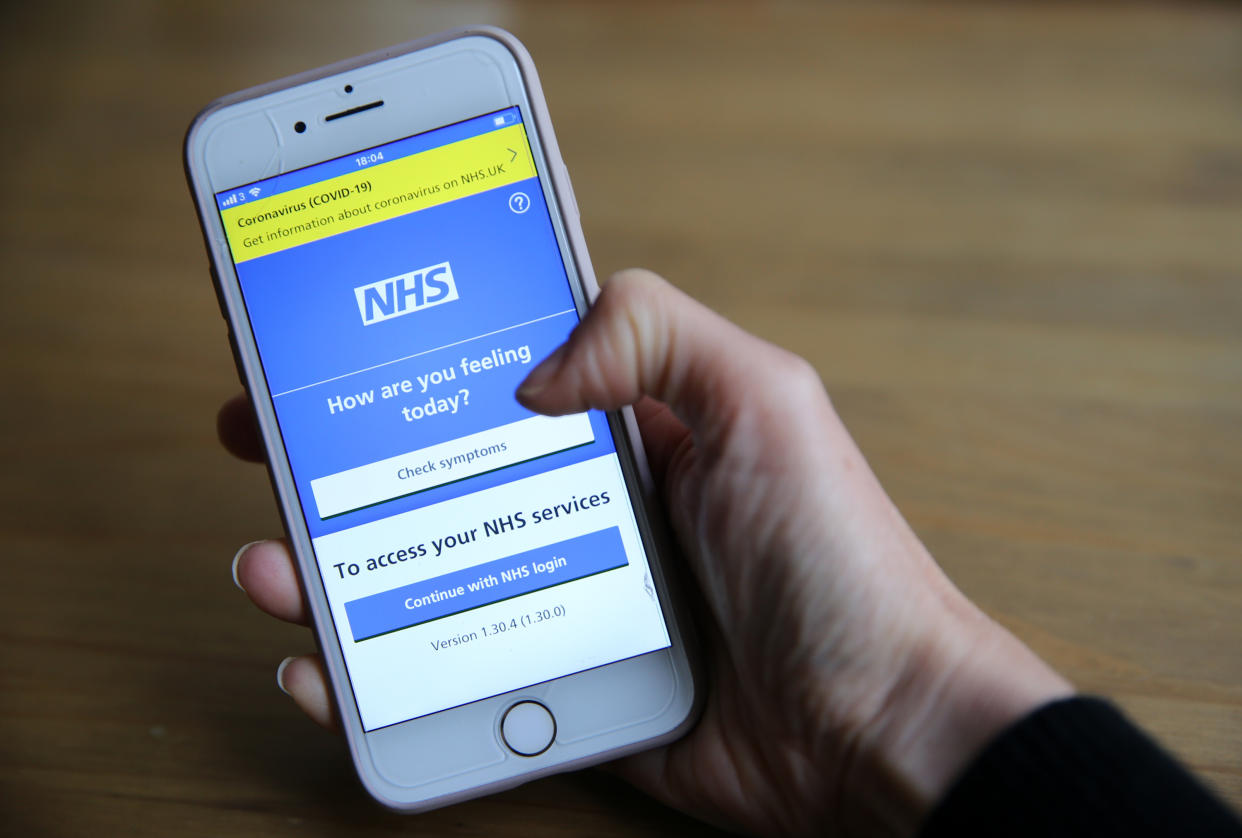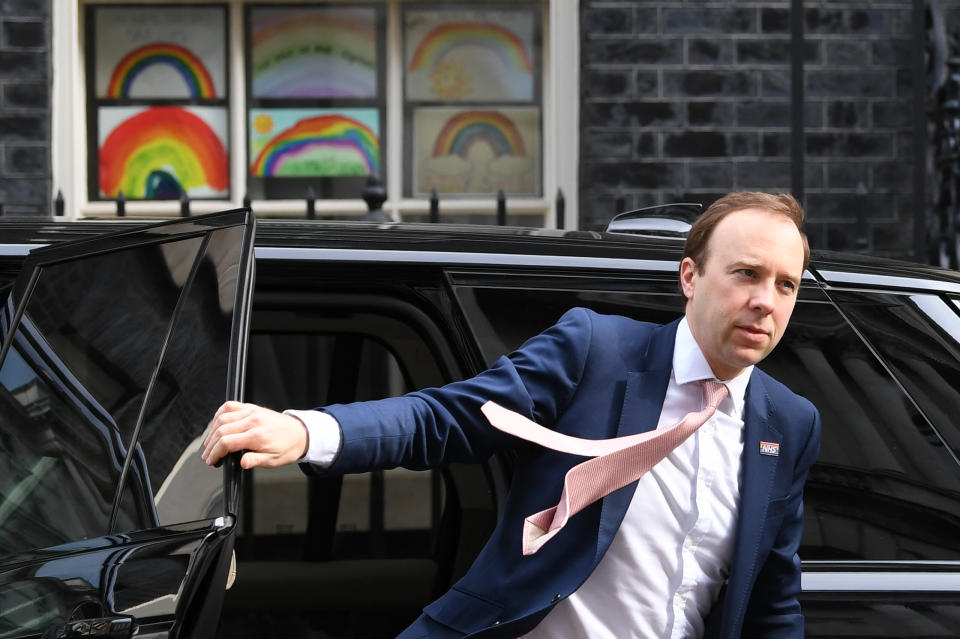Coronavirus: How does the NHS contact tracing app work?

A contact tracing app is currently being trialled on the Isle of Wight ahead of a proposed nationwide roll-out in the next few weeks.
It is hoped the new NHS app, which tracks the spread of the virus via Bluetooth technology in people’s phones, will allow the government to ease the lockdown restrictions faster.
Health secretary Matt Hancock has described the app as central to the government’s “test, track and trace” strategy for lifting the social distancing measures.
But how does it work and when will it be released in the rest of the UK?

What is the coronavirus contact tracing app?
The app uses Bluetooth to keep an anonymous log of everyone you come into close contact with.
Users who present symptoms of COVID-19 alert the app, stating whether they are experiencing a high temperature and a continuous cough, and when these symptoms started.
If it appears they might have the virus, the person will be told to book a test.
Latest coronavirus news, updates and advice
Live: Follow all the latest updates from the UK and around the world
Fact-checker: The number of COVID-19 cases in your local area
6 charts and maps that explain how coronavirus is spreading
Anyone who has been in close proximity with the infected person will be notified if they are deemed to be at risk, and they will be told to isolate for 14 days.
Once installed and set up, the app will run in the background, keeping a log of everyone you pass.
How does the app help stop coronavirus?
The app is voluntary, so its effectiveness will rely on the amount of people actually using it, but health figures are hopeful it will allow the government to stem the spread of the disease.
“Something that is automated, that can work alongside traditional epidemiological contact tracing is potentially going to be of very great use to us,” Professor Jonathan Van-Tam, deputy chief medical officer for England said.
As the government continues to ramp up testing for the virus, the app will allow health officials to predict who is most at risk from coronavirus and deliver care where needed.
Matthew Gould, CEO of NHSX, the part of the health service that developed the app, said: “The app is exciting, but it’s also not a silver bullet or a standalone solution, it’s part of this wider strategy.
“It has to be seen as part of this strategy alongside the expansion of testing and human contact tracing,” he said.
Hancock said the more people who sign up to the app, the more effective it will be, as he hailed its development as a “very, very positive step”.
How do you download the app?
The app is not currently available to download in most parts of the UK as it is still in the trial stage.
It launched on the Isle of Wight on 5 May and NHS CEO Gould has said the launch of the app will be two to three weeks away for the rest of the country.
Hancock said that people on the Isle of Wight would be written to with details on how to download the app from the government.
He also said a new slogan for the NHS would be: “Stay at home, instal the app, protect the NHS, and save lives.”
Is the contact tracing app safe?
There have been concerns raised by some figures about the sharing of millions of citizens’ mobile phone data.
Amnesty International UK director Kate Allen has called on ministers to explain why, unlike other European countries, Britain is establishing a central database to store information.
But officials insist the app has been designed with privacy and security “front of mind”, with the data stored on an individual’s phone until the point they contact the NHS to report symptoms and request a test.
The health secretary told BBC Breakfast on Tuesday: “The purposes of this are purely and simply to control the spread of the virus, which is really important.
“We’ve all had to give up significant infringements on our liberty – for instance, with the social distancing measures and the lockdown – and we want to release those, and this approach will help us to release them.”
Coronavirus: what happened today?
Click here to sign up to the latest news, advice and information with our daily Catch-up newsletter

 Yahoo News
Yahoo News 

